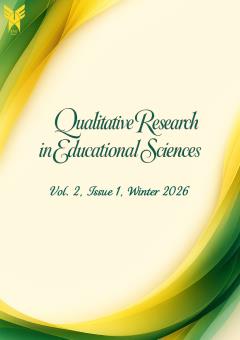The aim of the Quarterly Journal of Qualitative Research in Educational Sciences is to provide an intellectual environment for researchers to present the latest research findings in the field of educational sciences. In this regard, it is expected that the findings of the research will be effective in presenting suggestions and solutions derived from research conducted on the core issues and basic needs of the country's educational system, and will lead to the creation of a suitable scientific and research atmosphere for the exchange of ideas.
This journal welcomes all types of qualitative research conducted using one of the qualitative methods.
- Theme Analysis
- Content Analysis
- Semiotic Analysis
- Discourse Analysis
- Narrative Analysis
- Phenomenology
- Grounded Theory
- Historical
- Ethnography
- Genealogy
- Case Study
- Action Research
- Comparative
- Deconstruction
This journal welcomes all qualitative research conducted in all areas of educational sciences:
- Adult Education
- Comparative Education
- Counseling and Guidance
- Curriculum Planning
- Distance Education Planning
- Economics of Higher Education
- Educational Assessment
- Educational Management
- Educational Planning
- Educational Psychology
- Educational Research
- Educational Technology
- Exceptional Education
- Higher Education Development Planning
- Higher Education Management
- History and Philosophy of Education
- Human Resources Education and Development
- Preschool and Primary Education
The Journal officials hopes that by publishing research conducted in the field of educational sciences, they can contribute to the following goals:
- Criticizing and reviewing existing theories and developing theoretical knowledge in the field of educational sciences.
- Developing creativity and innovation in to expand the capacities for improving performance in educational systems.
- Improving the quality of decision-making in the field of educational sciences.
- Promoting critical thinking and increasing a deeper understanding of educational phenomena.
- To facilitate researchers' access to the latest research findings in this field, this journal allows readers to freely access its articles.
- To improve educational practices through comparative studies in relation to the experiences of other countries.
- To represent experiences in order to help reduce the problems of the country's educational system.


